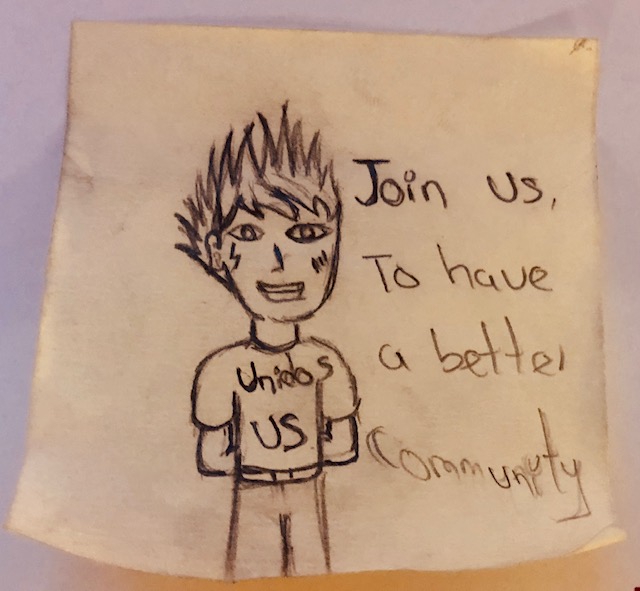See What DC Latino High Schoolers Say About Their High School Experience—And How They Believe They Can Make Change
It’s easy to think that most high school students would rather hang out with their friends or play sports than get together for an after-school workshop on improving their high school experience, especially if they’re close to graduating.
But this spring, a group of more than 50 Latino high schoolers from around the Washington, DC, area packed the Latin American Youth Center to do exactly that—talk about what they like, dislike, and want to change in their schools for themselves, their classmates, and the students who come after them.
Sponsored by UnidosUS, the Youth Advocacy Forum was created as a pilot workshop centered around UnidosUS’s 2019 report The State of Public Education for Latino Students and led by its author, UnidosUS Deputy Director of Research Patricia Foxen, along with LAYC’s Leadership Coordinator Juan Pacheco.
The report itself discusses the diversity of perceptions and experiences of Latino students within the American public school system and was based on focus groups with Latino youth attending high schools in Orlando, Florida; Las Vegas, Nevada; Pontiac, Michigan; and Nashville, Tennessee. The goal of the workshop was to get local students to engage with the report’s findings, share their own stories, identify avenues for change, and help students think about how they can advocate for themselves as they finish high school and plan for their next phase of life.
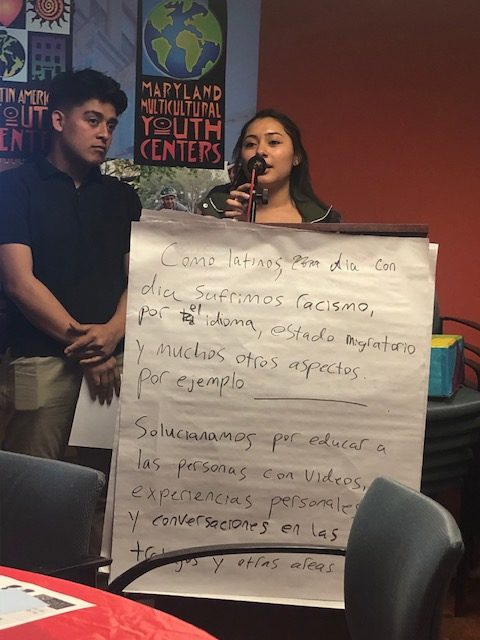
UnidosUS has produced a video of the event (which you can watch above) and a downloadable workshop guide and Powerpoint presentation to help other educators and community organizers recreate the experience with their own groups of youth.
- Download the full report and supporting materials here
“Our hope is that this workshop will be replicated widely so that more Latino students can become part of a national, youth-led movement to promote education equity.” – Dr. Patricia Foxen, UnidosUS Deputy Director of Research
During the first phase of the workshop, Foxen provided context to the history of advocacy and civil rights by presenting a video of UnidosUs’s 50-year legacy of civil rights and then discussing how public education has always been an integral part of that movement. Students were asked to define the word “advocacy” and to consider how they might better advocate for themselves as they move through their schools.
Because advocacy requires visioning to properly identify and solve problems, for their first exercise, students were asked to create two murals of—one depicting their education dreams and positive aspects of their education, the other the challenges they’ve encountered during their high school experience.
“While it is telling that there were many more negative quotes than positive ones, it is also clear from reading the ‘positive’ mural that youth respond well to teachers and staff who show Latino students that they are seen and heard, and who nurture their culture and strengths,” says Foxen.
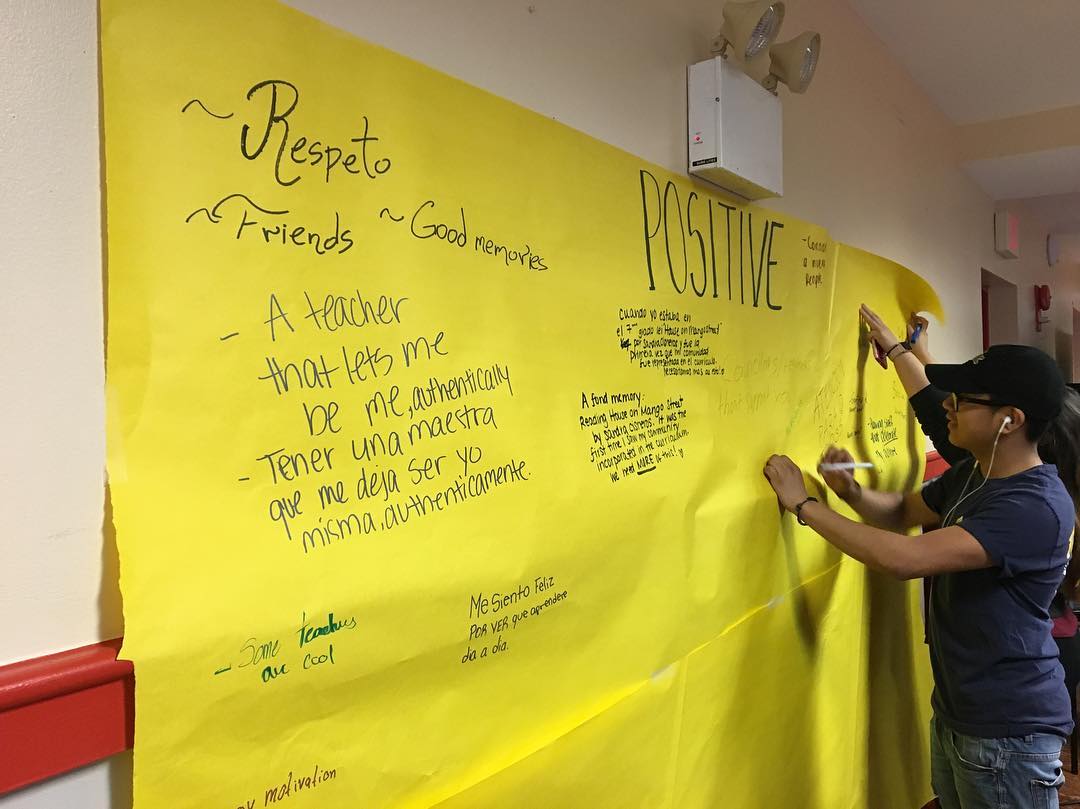
Next, she told the students a bit more about the UnidosUS report, briefly explaining the study’s methodology and findings. The students were then asked to engage with these findings by walking around the room looking at sheets of paper containing quotes from Latino students who participated in the original focus groups. Students stuck blue Post-its on quotes that were true for their particular school or community and yellow Post-its on quotes that weren’t.
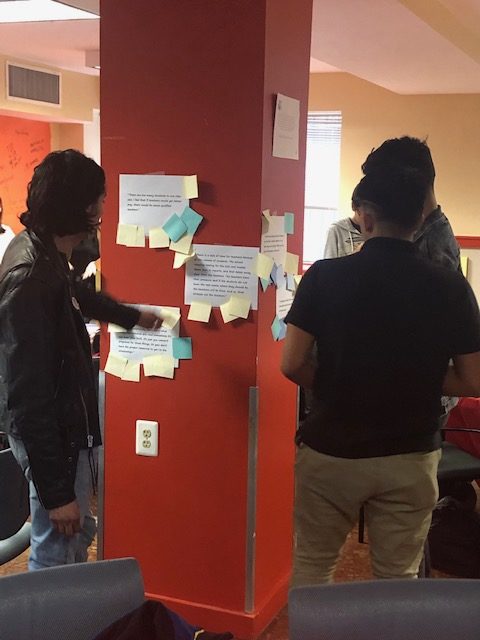
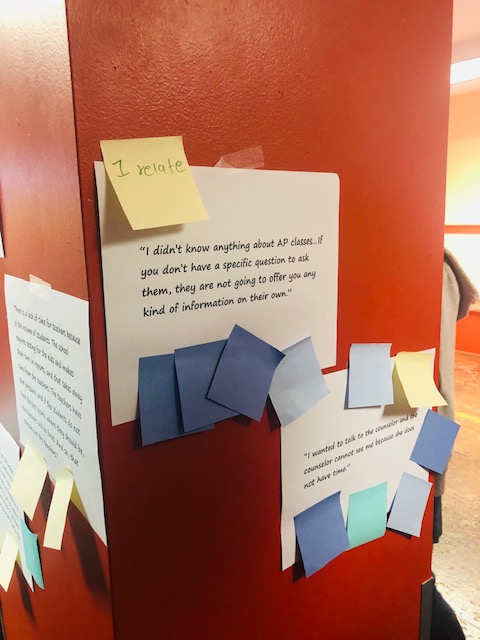
“People learn by making connections to their own lives and experiences, and actively integrating new information in their understanding of the world. The workshop activities get students thinking critically about how this research connects with their own experiences,” says Maria Moser, UnidosUS’s Senior Director of Teaching and Learning.
That’s exactly what Foxen saw in the pilot workshop.
“Watching the students engage with the focus group quotes was really exciting,” she says. “Because we had students from different DC public schools, they learned from each other what types of challenges and supports they had received in their respective schools. For some there seemed to be an ‘aha’ moment where they realized that some of the difficulties they faced in school actually could be remedied.”
During the final phase of workshop, students were asked to break into small discussion groups facilitated by volunteer students from DC-area universities such as Georgetown, American University, and The George Washington University. Each group focused its discussion on a particular theme of the report—such as the impact of limited funding and resources, relationships with school staff, school climate, or inclusiveness and discrimination—and answered questions such as:
- What problem or issue is most important for this area in your own community?
- What are some things you could do to make a difference?
- What do adults need to know about this? Which adults would you talk to?
Each group created an “elevator pitch” that described the core problem or concern, and came up with ideas for solutions that could be presented to teachers, school administrators, or policymakers.
To keep students active and alert throughout the two hours, the exercises were interspersed with snack breaks and music, activities led by volunteer students. Through these activities, a research paper most likely read by education programmers and policymakers came alive for high school students.
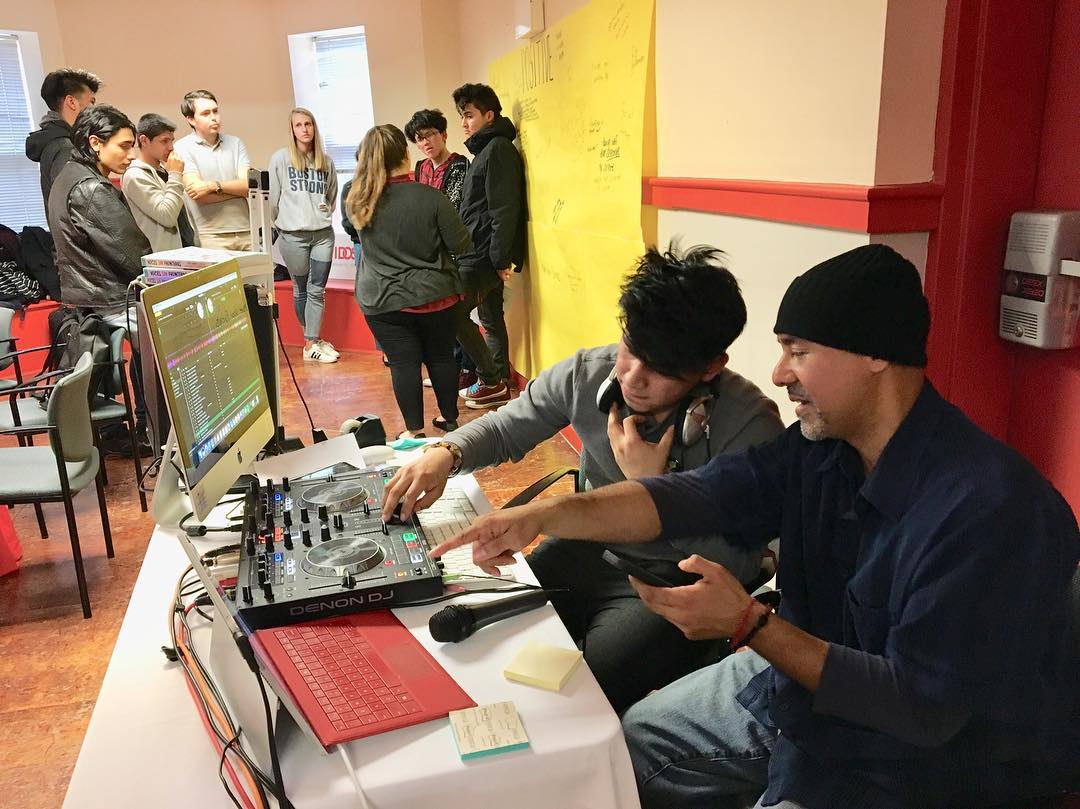
“At UnidosUS, we know that education policies are fundamentally about civil rights. Sadly, the report itself shows that longstanding inequities in funding and infrastructure are now being exacerbated by rising xenophobia and anti-Latino rhetoric and policies coming from the highest levels of our government,” Moser says.
“Latino students—and all students in this country—deserve better. Our future depends on the resilience and strength of its youth. Through workshops like this, UnidosUS and its Affiliates support young people to confront difficult problems through advocacy and solidarity,” Moser adds.
Foxen concurs. “Showing these youth that their experiences are shared with other students around the country, and that they can collectively find ways to create change sends a critical message,” Foxen says. “Our hope is that this workshop will be replicated widely so that more Latino students can become part of a national, youth-led movement to promote education equity.”
